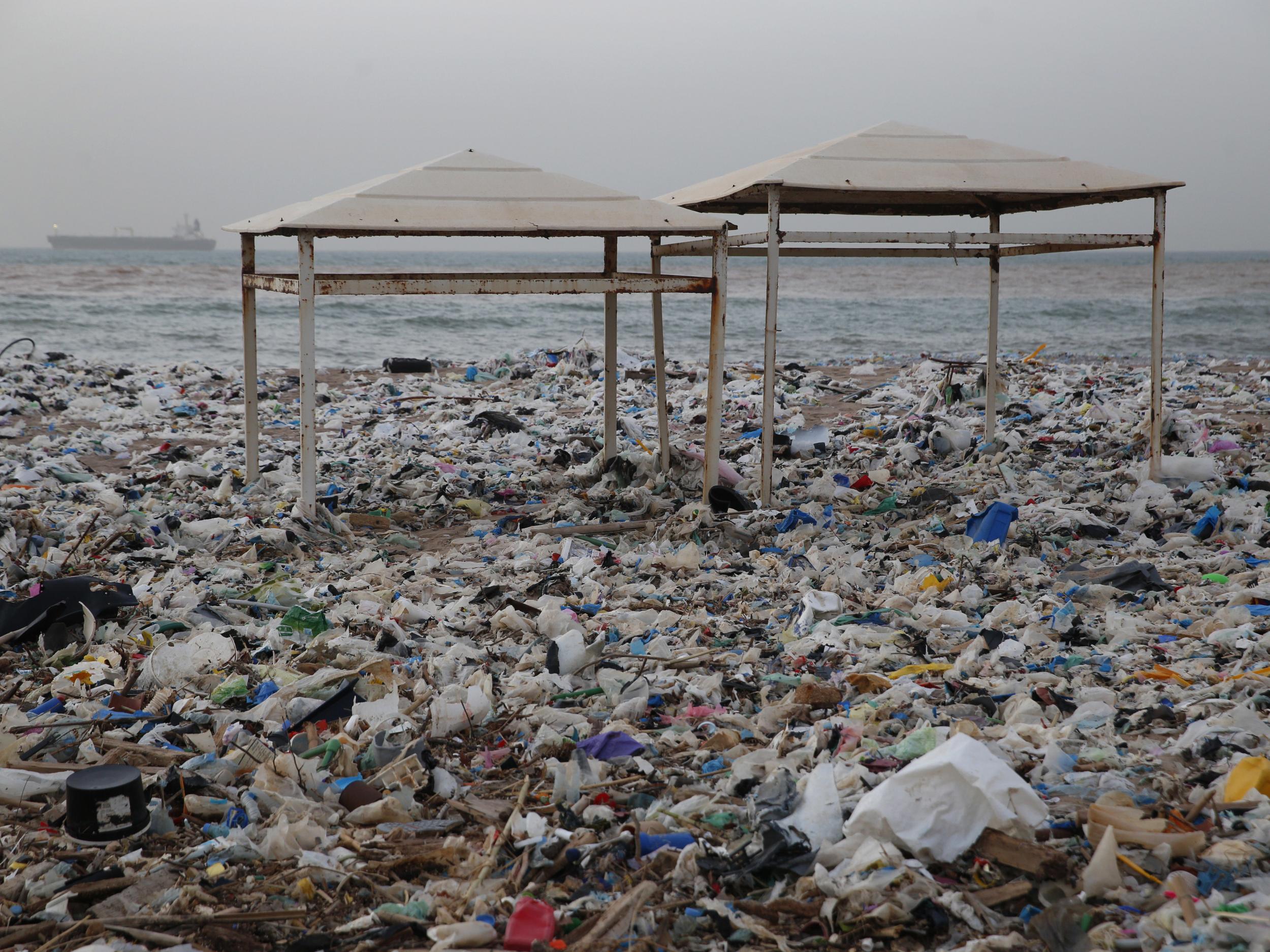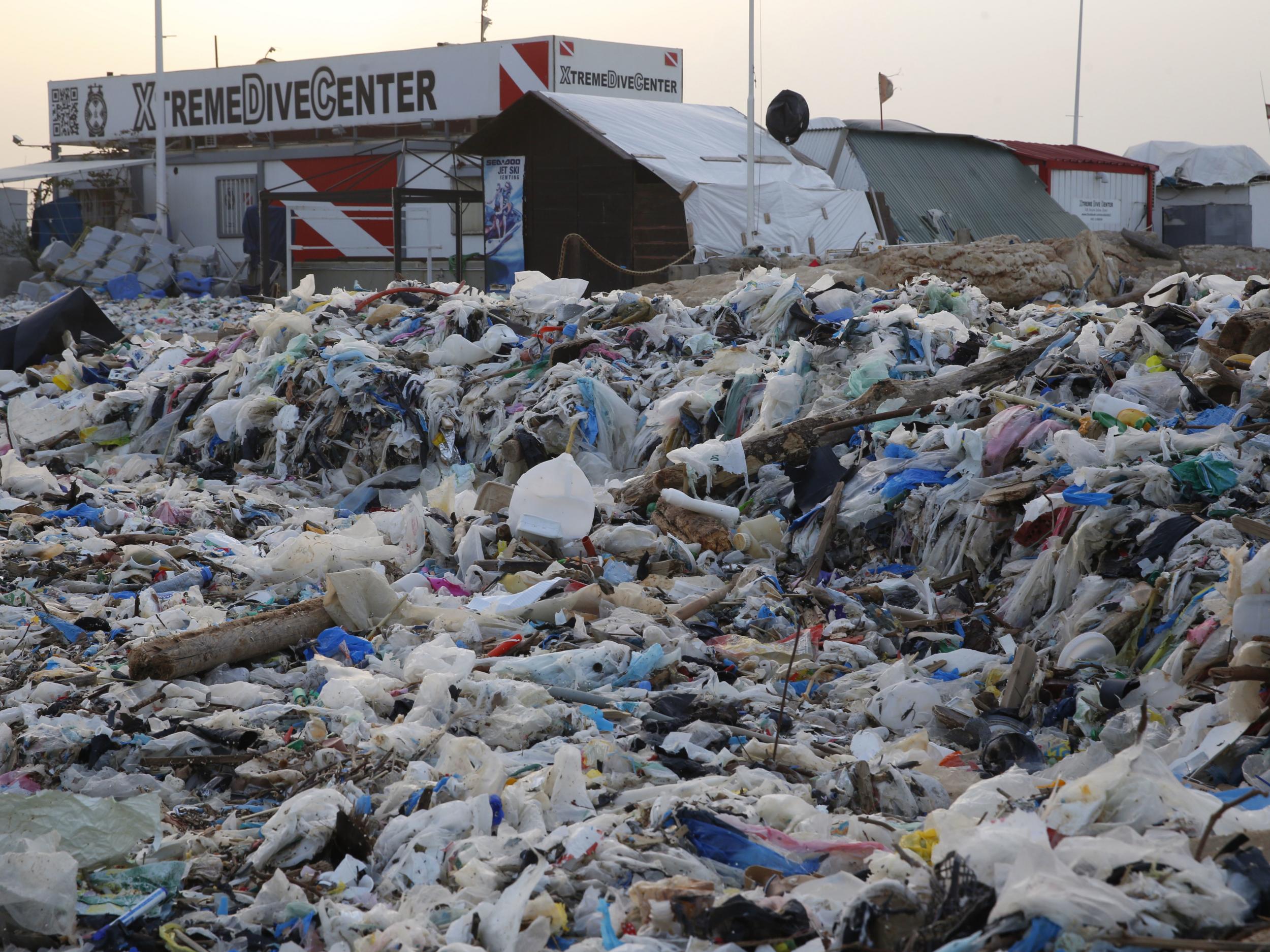Lebanon: Huge piles of rubbish wash up on beach near Beirut amid national waste crisis
'We have the best recycling industry in the Middle East. Why don't we use it?'

Your support helps us to tell the story
From reproductive rights to climate change to Big Tech, The Independent is on the ground when the story is developing. Whether it's investigating the financials of Elon Musk's pro-Trump PAC or producing our latest documentary, 'The A Word', which shines a light on the American women fighting for reproductive rights, we know how important it is to parse out the facts from the messaging.
At such a critical moment in US history, we need reporters on the ground. Your donation allows us to keep sending journalists to speak to both sides of the story.
The Independent is trusted by Americans across the entire political spectrum. And unlike many other quality news outlets, we choose not to lock Americans out of our reporting and analysis with paywalls. We believe quality journalism should be available to everyone, paid for by those who can afford it.
Your support makes all the difference.A huge pile of rubbish has washed up onto a beach to the north of Beirut, prompting activists to claim that Lebanon’s waste crisis is far from over.
"Somebody needs to pay for this," said Paul Abi Rached, president of Lebanon EcoMovement, a network of environmental NGOs, after plastic bags, bottles and packaging covered the beach at Zouq Mosbeh.
He was concerned about the effect of potentially toxic materials on both local residents and ecosystems in the Mediterranean Sea, he said.
It is thought marine currents whipped up by a winter storm, transported the rubbish north from the Costa Brava landfill site, which is close to Beirut’s international airport. It was re-opened in 2015.
Mr Rached said the rubbish aas a symptom of a much larger waste problem in the country.
In 2015, a rubbish disposal crisis in Beirut prompted thousands of Lebanese citizens to take to the streets under the banner “You Stink”. They demanded action from the government on electricity and water provision and waste management.
Residents had previously shut down a landfill that had been overflowing for years, leading municipalities to find ad hoc spots to dump rubbish.

Since then, Mr Rached said there had been little improvement in the country’s waste management and he accused the government of ignoring long-term solutions in favour of burning waste and dumping rubbish in the sea.
A Human Rights Watch report published in December also warned of a “silent crisis” in the management of Lebanon’s waste and criticised authorities for failing to end the open burning of waste across the country.
Earlier this month, the Lebanese cabinet approved a plan to expand the Costa Brava landfill site and create a new one in Tripoli. The plans also involve building a composting facility at Costa Brava.
Mr Rached would like to see the end of landfill altogether. Organic waste could be taken to Lebanon’s agricultural regions and used as compost, he explained, and recyclable rubbish separated and processed for reuse.
“We have the best recycling industry in the Middle East,” he said. “Why don’t we use it?”
Mr Rached believes more waste will end up on beaches in Lebanon – and perhaps as far afield as Cyprus and Greece – if the government does not work towards sustainable measures.
“But they don’t want to listen to good solutions,” he said.
The Lebanese Ministry of Environment did not respond to The Independent’s request for comment, but Prime Minister Saad Hariri earlier told reporters he had ordered authorities to clean the Zouq Mosbeh beach.
He said the clean-up may have to wait until another storm has passed, however, which could bring even more waste ashore.
Additional reporting by AP
Join our commenting forum
Join thought-provoking conversations, follow other Independent readers and see their replies
0Comments